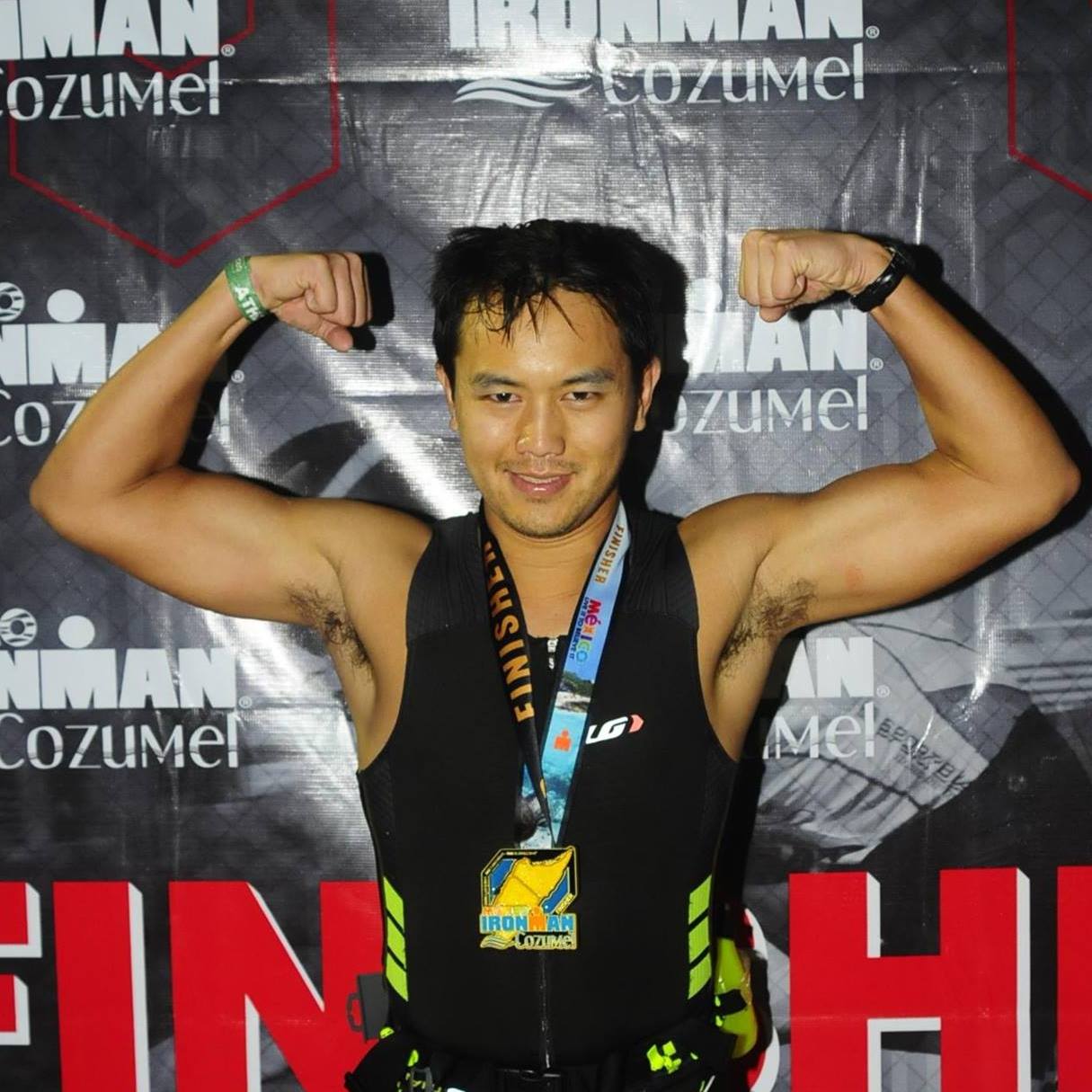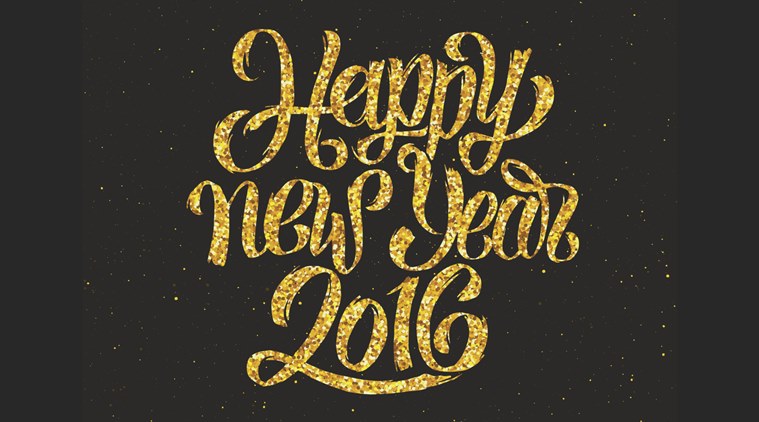There’s a little less than 6 months left in 2017, which means I’m due for a check-in on my annual goals. This is just a reflection on goal progress over the last 6 months and on how I can do better in the next 6. For more context on the goals themselves (e.g. why I even care about doing some of these things), see the original post.
Summary
At a high-level, I think I’m generally moving in the right direction for most of my goals. There are a few where I’ve honestly made very little progress, and there a few where I’ve already hit my stretch goals. If I had to grade myself, I think I’d give myself a C+.
Qualitatively, I do feel generally more confident and less afraid and je peux parler une petite peu de francais :).
For the rest of 2017, I should try to do a better job of tracking metrics for my goals and try to establish more goal-related habits and routines to help me make consistent daily or weekly progress on some of the longer term goals.
Review
Green below means an objective or key result is done. Red means it hasn’t been done or is at risk. For mid year, it’s a good sign to be averaging yellow on all of these.
- Conquer my fears and insecurities by cultivating courage.
- Do at least 150 things total that scare me this year. (Does not have to be 150 unique things if appropriate level of fear is still present.)
- I haven’t done a very good job of tracking this, but I think I’ve probably completed on the order of 30-50 fear challenges this year, especially since this overlaps with rejection challenges. Some of my favorites include:
- Committing to leaving the safety and comfort bubble I’ve built for myself in Silicon Valley. (I leave at the end of July.)
- Learning to lead climb and passing my lead climbing certification test.
- Night diving in San Diego. (Though I was with friends, so it
- admittedly wasn’t as freaky as it could have been.)
- Risk Mitigation: Track challenges more consistently. Figure out how many of these I really need to do each week in order to stay on track, and try to hit those numbers rather than worry about the yearly numbers.
- I haven’t done a very good job of tracking this, but I think I’ve probably completed on the order of 30-50 fear challenges this year, especially since this overlaps with rejection challenges. Some of my favorites include:
- Conquer my fear of failure.
- Figure out what I would do if I weren’t working at Palantir.
- I admittedly have taken none of the steps to network with people in various professions or problem spaces that I had set out to at the beginning of this year, but much of what I’ve learned about myself recently tells me that this isn’t the right time for any of that. Nevertheless, I have enough clarity now to say that I know generally what I would do for at least a year post-Palantir.
- Stretch: Take a leave of absence from work or quit and do my own things for 3-6 months or leave my current job to work on something more risky.
- While I haven’t yet committed to leaving my job, I have asked Palantir to send me to France and, while I intend to keep an open mind about this, I do have a timeline along which I am mentally committed to leaving lacking any large changes.
- Figure out what I would do if I weren’t working at Palantir.
- Conquer my fear of rejection.
- Get rejected at least 100 times trying 100 different things.
- I haven’t done a very good job of tracking this, but don’t think I’ve hit 50 unique things so far. I’d guess I’ve done on the order of 20 different rejection challenges of varying difficulties including:
- Asking several attractive women out on a date.
- I only ever do this when I’m genuinely interested and want to get to know someone better.
- Going on some dates with attractive women.
- Again, I only ever go on dates when I’m genuinely interested.
- Attending a speed dating event.
- Asking for a kitchen tour at Joya in Palo Alto.
- Asking random strangers at the mall for a high five.
- Asking strangers on University Ave if they’d be willing to take a picture with me.
- Generally trying to get to know co-workers that I otherwise have no reason to talk to (e.g. sitting with a random new group of total strangers at meal time).
- Asking several attractive women out on a date.
- Risk Mitigation: Track challenges more consistently. Figure out how many of these I really need to do each week in order to stay on track, and try to hit those numbers rather than worry about the yearly numbers.
- I haven’t done a very good job of tracking this, but don’t think I’ve hit 50 unique things so far. I’d guess I’ve done on the order of 20 different rejection challenges of varying difficulties including:
- Complete at least Foundation Level 2 improv at BATS.
- Finished this one in March!
- Get rejected at least 100 times trying 100 different things.
- Conquer my fear of sharks.
- Go swimming in a shark cage.
- I actually think I wouldn’t be afraid to do this today. The issue is more around time and money–I think last I checked shark caging is pretty ‘spensive.
- I haven’t done much on this front other than swim Alcatraz despite knowing there are great white sharks in San Francisco Bay.
- Risk Mitigation: Put together a fear hierarchy for exposure to sharks which I can use to gradually combat my irrational fear/anxiety when around them.
- Go swimming in a shark cage.
- Conquer my fear of spiders.
- Hold a tarantula in my hand without freaking out.
- Most of the issue here is that this goal is, itself, entirely too hard for me to tackle from the outset. I definitely need smaller, more realistic goals leading up to this and I’ve failed to define those so far.
- I’ve done very little on this front.
- Risk Mitigation: Put together a fear hierarchy for exposure to spiders which I can use to gradually combat my irrational fear/anxiety when around them.
- Hold a tarantula in my hand without freaking out.
- Conquer my fear of falling.
- Go bungee jumping.
- Go rock climbing outdoors.
- Stretch: Go lead climbing outdoors.
- I haven’t been climbing outdoors yet, but I did take a lead climbing class, and I do now have a lead climbing certification card at Planet Granite. This has done a lot to help me get over the fear of falling.
- Conquer my fear of open water.
- Complete an Alcatraz swim.
- Complete scuba certification.
- Stretch: Go on 2 additional dives after certification.
- I’ve actually gone on 3 dives past my certification! Twice in San Diego, and once in Nice, France.
- All of the key results have been accomplished for this one, but I’ve noticed that I am still irrationally afraid of swimming in open water alone. Large groups like a swim race aren’t a problem, and I strangely don’t feel a lot of fear while scuba diving (perhaps because I’m always with a guide?). I think I could plan to push myself further here, but I may leave continued progress on this one to next year in order to hit some of my other goals.
- Do at least 150 things total that scare me this year. (Does not have to be 150 unique things if appropriate level of fear is still present.)
- Become confident around attractive women.
- Ask out at least one woman I find attractive each week in person.
- Go on at least one Tinder date.
- I haven’t gone on a single Tinder date :P. I did go on a Coffee Meets Bagel date, but I honestly find it hard to genuinely connect with a complete stranger over text. Pretty much all of the dates I’ve been on this year have been with people I met somehow in real life, and then asked out later either in person or by message.
- I realized pretty immediately after I wrote my resolutions that these key results are awful and needed to be altered.
- “Ask out at least one woman I find attractive each week in person” is entirely too aggressive given my comfort level, given that I’m extremely picky, and given that I don’t meet new women that often.
- “Go on at least one Tinder date” isn’t something that I can immediately control, nor is it necessarily a good proxy for the actual goal here.
- Overall, I actually feel like I’m doing well here. At the beginning of this year, I felt like I had no idea at all what I was doing when it came to asking attractive people out, or being a normal human being (as opposed to a puddle) when talking to them, or dating them. At this point, I feel pretty comfortable with just being honest and just being myself. I’ve found that if I express my honest attraction to a woman directly and confidently, I can walk away feeling like I have paid her one of the highest compliments I can give regardless of whether or not she agrees to see me. I’ve also found that I’m very happy with who I am and how I communicate with others in my most natural of states–I’m usually a little sarcastic and dry, but overall I like to think I’m a fun and amusing person to hang out with–most of my anxiety around attractive women comes from being too worried about her perception of me and therefore failing to be present. Anyway, to summarize: I feel like I’m probably on the average side of dating ability now, whereas before I really just didn’t feel like I had any idea what I was doing. I’m still afraid of the idea of walking up to a total stranger and trying to get to know her from there and I’d like to feel like I can handle myself in that situation, but I’m doing OK.
- Read more.
- Learn to speed read.
- Read a book about speed reading.
- Watch speed reading lectures I have saved.
- Didn’t do this, but am replacing knowledge-oriented key results with just time practicing at this point.
- I haven’t been practicing consistently, but I did purchase some software (7 Speed Reading) which I think would get me to where I want to be if I just used it for 20-30 minutes regularly.
- Risk Mitigation: Commit to doing 20-30 minutes of speed reading practice every other day.
- Read at least 40 books.
- So far I’ve read about 20 books, so I’m tracking well here. 80% of those books were read in the first 3 months of the year, however, so I have slowed down and that does present some risk to completing this.
- Learn to speed read.
- Become a polyglot.
- Become fluent in French.
- Spend at least 1 hour each day learning French.
- I was fairly consistently at 30-60 minutes for awhile at the beginning, but have been learning a little bit more passively since. So far I’ve memorized ~1000 of the most frequent French words, did a few language exchanges through italki.com, studied a grammar book and did a large number of exercises, and spent 10 days in France realizing that I still suck at talking to people. Right now I’m mostly doing things to increase my exposure to natural French language like playing video games (Skyrim aka Bordeciel is awesome for this haha), reading books, and watching TV.
- Earn the DELF B2 French language qualification or higher.
- I haven’t taken a super official test, but I do have a McGraw-Hill certificate stating that I passed one of their B2-level French diagnostic tests. This was probably the lowest test score I’ve had in my life (#asianproblems), but I passed… on the second try haha.
- Stretch: Earn the DELF C1 French language qualification or higher.
- Read Harry Potter in French.
- I have the first book in French both on Kindle and on Audible and have done a few sessions where I read along while I listen, but progress is a little slower than I’d hoped. I’m actually having more success with L’Alchemiste by Paulo Coelho, perhaps because it’s one of my favorite books and I’ve already read it multiple times in English.
- Risk Mitigation: Hoping to spend about 6 months in France starting in August. Ahead of that, I need to focus more of my attention on actually talking to native French speakers. Book studying is great, but not really what I need right now.
- Spend at least 1 hour each day learning French.
- Future: Become fluent in Chinese (Mandarin).
- Future: Become fluent in Japanese.
- Future: Become fluent in Spanish.
- Become fluent in French.
- See the beauty and strength of which my body is capable.
- While I haven’t exactly let my fitness languish, and I’m still in pretty good shape, I haven’t made much real progress towards my goals here in the past few months.
- Qualify for the Boston Marathon.
- Strategy here was to break through to a 5K time that would extrapolate out to a Boston-qualifying marathon, then work up to the same for a 10K, then a half marathon, and finally a marathon. I’ve come close to the fitness level required for the 5K (~6:00/mi), but in boosting my run intensity I’ve struggled with knee injuries. I’ve spent much of the last few months in physical therapy, but if I’m being totally honest with myself I know I could also be doing more to speed my recovery so I can get back to racing. As is, this goal is at risk, and it’s looking increasingly unlikely that I’ll qualify for the 2018 Boston Marathon.
- Risk Mitigation: I need to double down on my physical therapy exercises to make sure I can keep running in the long-term. Additionally, I’d like to try a few different things with my training. Boosting intensity on shorter distances is definitely helping my speed, but I think it could also do a lot for me to simply train back up to marathon endurance and continue competing in races to just chip away at my personal record.
- Develop a 6-pack.
- Still just have the 4 on top with no sign of the bottom 2 underneath the blubber.
- Get down to 9% body fat.
- Started at about 15%, still at about 15% :/. Finding that discipline with food is hard for me especially when the company I work for offers all-you-can-eat meals 3 times a day. (I know, I know… world’s smallest fiddle here…)
- Do an abdominal workout three times a week.
- Risk Mitigation: Well, my physical therapist has also recommended lower abdominal exercises, so I don’t have much excuse anymore here. I’d like to focus more on the diet aspect of this. It blows my mind that I was able to get myself to exercise for 20 hours a week to complete an endurance event, but not eating things is so hard. Ideally, I start planning my meals and combine calorie restriction with ketosis. I’ve also started experimenting with intermittent fasting as a method of achieving some basic calorie restriction and to help pull me into ketosis more quickly. Honestly, much of this is bro science, but the first step is building the discipline to hold to a routine long enough to determine if it’s working. Ketosis seems to work well for me since most of my guilty pleasure free calories come from carbohydrates like desserts and snacks… :(.
- Stretch: Lift weights three times a week.
- Improve my ability to regulate and compartmentalize thoughts and emotions, especially negative and anxious thoughts and emotions such as fear or insecurity.
- I haven’t been amazing about the key results here, but I’ve found that through a combination of rejection challenges and self-administered cognitive behavioral therapy, many of the skills for doing this are becoming increasingly internalized.
- The single most helpful thought for this has been remembering always that “this, too, shall pass.” This thought helps with not panicking when things aren’t going great, and helps provide perspective to not take feeling great for granted so I notice why I feel great when I do. I can then optimize for making things that usually lead to me feeling great happen more often.
- Meditate for 20 minutes every day.
- I’m a bit on and off with this. I have long streaks where I’m good about it, and long streaks where I’m not. I do best with this when I make it part of a routine and meditate early in the morning when it feels like I have all the time in the world.
- Risk Mitigation: I’ve definitely found that consistently waking up early (6AM or 7AM) and meditating first thing completely kills the excuse of “I don’t have time” or “I don’t have energy.” When I actually wake up several hours before the work day, I feel like I have all the time and energy in the world to do these things.
- Write in a journal at least once a week.
- I’ve written a few journal entries, but mostly this tends to happen when there’s a lot on my mind and I just need to get it out of my head. So I haven’t been super consistent about this, but I’d also say that once a week is probably a bit too frequent.
- Become more politically active.
- Become more politically informed.
- I have books picked out for all of these categories, but haven’t read them yet. I have, however, read a number of biographies of political and philosophical figures I admire including Martin Luther King, Bruce Lee, Joe Biden, and Ben Franklin.
- Read at least 2 books about healthcare issues.
- Read at least 2 books about global warming and environmental issues.
- Read at least 2 books about education issues.
- Read at least 2 books about immigration and globalization.
- Read A Nation of Immigrants
by JFK
- Read A Nation of Immigrants
- Read at least 2 books about economics.
- Read at least 2 books about political theory and political philosophy.
- Risk Mitigation: Not sure there’s much I can do here but read more, and focus more of my reading time on these books rather than whatever else appeals in the moment.
- Become more politically informed.






